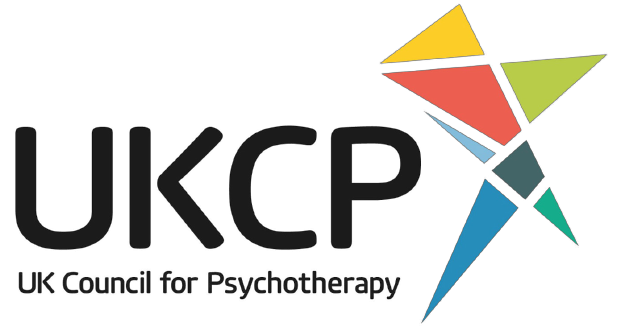Food For Thought
Exhibition at the Science Museum.
Where does our sense of identity come from? From memories? brain functions? how do we express our emotions, such as when smiling? what is the healthy or unhealthy I?
Enjoy a time in the open, at a place of treasure.
Art and psychoanalysis: emotion, intimacy and the unconscious
Exhibition from the Central Saint Martins Museum & Study Collection, by an alumni and Assistant Curator, who had previously worked at the Freud Museum. It explores the relation and contrast of body and mind, the conscious and the unconscious, and the potential for both expression and repression.


Food For Thought
The Romantics at the National Portrait Gallery, and previously at the Tate Britain.
At the National Portrait Gallery in room 18: "Art, Invention & Thought." The Romantics' vivid but dreamy-like imagery highlighted the inner world, where sleep could be symbolically seen as entering unconscious levels of inspiration.
In this room, they are placed in context among poets, literary writers, artists, and scientists. For the Romantics in science, read The Age of Wonder: How the Romantic Generation Discovered the Beauty and Terror of Science by Richard Holmes.
The Bethlem Museum of the Mind
Located at the Bethlem Royal Hospital, Monks Orchard Road, Beckenham, it houses superb archives on mental illness and art collections.
About the psychoanalytic and Jungian approaches

Psychoanalytic and psychodynamic psychotherapy
Psychoanalytic relationships are generated by the desire to find meaning as well as relief from psychological suffering. Different schools of psychotherapy have emerged and continue to develop from Freud's original work. In psychoanalytic psychotherapy particular attention is paid to analysing transference and resistance issues, so that the patient is helped to find a more creative relationship between conscious and unconscious processes and to discover their own personal truths. Finding a therapist may take deliberate research, but is a process of discovering the right 'fit' between the two persons involved. In the long training, the therapist has also been in the role of patient, providing the commonality of experience which we think lies at the heart of the enterprise.
Psychoanalytic work explores the connection between events in early life, which may be unconscious, and current disturbance and distress. The therapy offers a reliable setting for free association to past and present phantasies, feelings, dreams and memories. Particular attention is given to the developing relationship with the therapist, as it is through this that the patient is able to re-experience relationships from their early life and explore new ways of relating, freer of the characteristics that previously caused distress. Through this transference relationship, the patient may achieve a new and better resolution of long-standing conflicts and overcome resistances to change and growth.
Jungian analysis
In Jungian psychotherapy the theories of analysis stem from the work of Jung which, along with other schools, has emphasised that psychological development occurs through relationships. The creativity and intelligence of the imagination and dreams are recognised, with particular attention drawn to the inter-active connection between unconscious and conscious processes. Individuation, Jung's term for self discovery, is seen as a realisation of oneself within the psychological, spiritual, political and economic networks of society. Jungian analysts consider that we all have in us the capability of healing ourselves and this is what Jungian analysis aims to develop.

About Psychotherapy and Counselling, from the UKCP
UKCP member psychotherapists undergo a 4-year, postgraduate, in-depth and experiential training in how to work with a variety of people with a wide range of emotional distress, mental health issues and difficulties.
To complete the clinical part of the training the course may take longer, for example, 5-6 years. Psychotherapists are trained in one or more of the psychotherapy modalities.
Counsellors can practice after receiving relatively short training, although some have many years of experience. It is generally accepted that counsellors provide shorter-term therapy.

What is Counselling, from the BACP
Counselling takes place when a counsellor sees a client in a private and confidential setting to explore a difficulty the client is having, distress they may be experiencing or perhaps their dissatisfaction with life, or loss of a sense of direction and purpose. It is always at the request of the client as no one can properly be 'sent' for counselling.
By listening attentively and patiently the counsellor can begin to perceive the difficulties from the client's point of view and can help them to see things more clearly, possibly from a different perspective. Counselling is a way of enabling choice or change or of reducing confusion. It does not involve giving advice or directing a client to take a particular course of action. Counsellors do not judge or exploit their clients in any way.
Counselling takes place when a counsellor sees a client in a private and confidential setting to explore a difficulty the client is having, distress they may be experiencing or perhaps their dissatisfaction with life, or loss of a sense of direction and purpose. It is always at the request of the client as no one can properly be 'sent' for counselling.
By listening attentively and patiently the counsellor can begin to perceive the difficulties from the client's point of view and can help them to see things more clearly, possibly from a different perspective. Counselling is a way of enabling choice or change or of reducing confusion. It does not involve giving advice or directing a client to take a particular course of action. Counsellors do not judge or exploit their clients in any way.
In the counselling sessions the client can explore various aspects of their life and feelings, talking about them freely and openly in a way that is rarely possible with friends or family. Bottled up feelings such as anger, anxiety, grief and embarrassment can become very intense and counselling offers an opportunity to explore them, with the possibility of making them easier to understand. The counsellor will encourage the expression of feelings and as a result of their training will be able to accept and reflect the client's problems without becoming burdened by them.
Acceptance and respect for the client are essentials for a counsellor and, as the relationship develops, so too does trust between the counsellor and client, enabling the client to look at many aspects of their life, their relationships and themselves which they may not have considered or been able to face before. The counsellor may help the client to examine in detail the behaviour or situations which are proving troublesome and to find an area where it would be possible to initiate some change as a start. The counsellor may help the client to look at the options open to them and help them to decide the best for them.
© Luke Siorvanes
powered by WebHealer